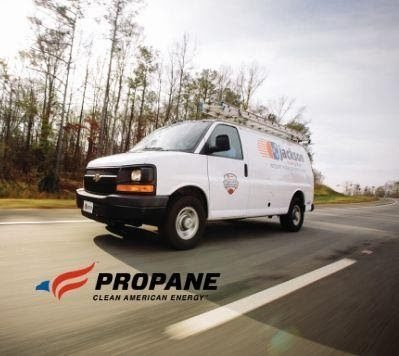Head to Head: Propane Autogas vs. Gasoline
Every business must balance profit, product viability and customer service. A healthy bottom line depends on meeting the needs of your customers while operating safely and efficiently. For companies that operate fleets, choosing the right fuel is critical to serving customers efficiently and economically. Propane autogas is an excellent consideration for businesses and their corresponding vehicles. Combined with the lower cost of fuel, propane vehicles have the lowest total cost of ownership among the major fuel types.
Interestingly, the benefits of propane autogas don’t start with the fuel but with engine technology. Innovative and reliable new engine designs take advantage of traditional power trains that incorporate the benefits of the higher-octane, low-carbon elements of autogas. As a result, engines that run on propane are cleaner, quieter, and more efficient than other vehicles on the market. Propane engines are even available with hybrid technology, maximizing the benefits of propane autogas.
Here are a few reasons why switching to propane for your fleet vehicles could elevate your business and boost your bottom line:
- Cost
Propane is consistently more affordable than gasoline, so savings can add up to thousands of dollars each year. Fleet managers can work with their propane suppliers to lock in pricing for months or even years. Also, propane prices stay more stable over time, so there is less uncertainty associated with fuel costs. Propane engines require less maintenance than other fuel systems, which means your vehicles are on the road instead of stuck in the shop. Finally, converting an existing fleet to autogas is unmistakably cheaper than purchasing electric vehicles. - Emissions
Propane is one of the cleanest burning fuels, limiting the impact on the environment compared to gasoline, diesel and even electricity. Propane engines have been proven to significantly reduce greenhouse gas and NOx emissions when compared to other fuel types. By producing fewer emissions, your business can build a reputation of being environmentally friendly and socially conscious. - Flexibility
Another benefit of propane is the convenient fueling options it provides. Whether your business requires an on-site fueling station or can utilize existing public infrastructure, there is an option for you. Your local propane dealer will be able to discuss the different options and help you decide which one best meets your needs. - Versatility
Propane is used for light and medium-duty fleet vehicles throughout the country, with proven results. Construction companies, law enforcement agencies, and taxicab fleets across America have reaped the benefits of propane in their light-duty vehicles. Propane can also fuel medium-duty vehicles, as with food and beverage delivery and transit services. Once business owners discover the benefits of propane, they often convert their entire fleet. Propane-powered vehicles are available from manufacturers as OEM-dedicated models, but existing fleets can also be converted to propane with certified aftermarket conversion kits. - Longer Engine Life
One of the overlooked benefits of autogas is its simplicity. Propane composition never changes. As mentioned above, it is also a very clean-burning fuel. That means that it produces less soot and residue than gasoline engines. Less soot means that spark plugs, valves and pistons all last longer while running on autogas. Some experts speculate that running autogas may double the life of your engine. One last advantage is that propane has an indefinite shelf life meaning that its effectiveness does not deteriorate over time. - Reduced Engine Knocking
Autogas enjoys a higher octane rating than conventional fuels. Higher octane fuels ignite at a higher temperature which can reduce or eliminate engine knocking caused by pre-ignition. Furthermore, autogas engines are not prone to high idling like their diesel counterparts. This means less wasted fuel and reduced engine wear. - Increased Range
Autogas engine conversions are done in parallel with existing engine hardware. In this setup, the gasoline remains unchanged and the vehicle can operate on both fuels interchangeably. The propane tank is usually installed in a manner in which passenger vehicles will either lose trunk space or their spare tire. The upside is that the range of the vehicle is essentially doubled with a seamless transition between the two fuel sources.
Propane autogas is a safe, reliable, clean fuel that can make a real difference in your business. More and more Missouri businesses are converting their fleets to propane to give themselves a competitive edge by saving money while still operating high-quality vehicles. To make use of innovative technology that will help your business and your community, consider autogas for your fleet.
